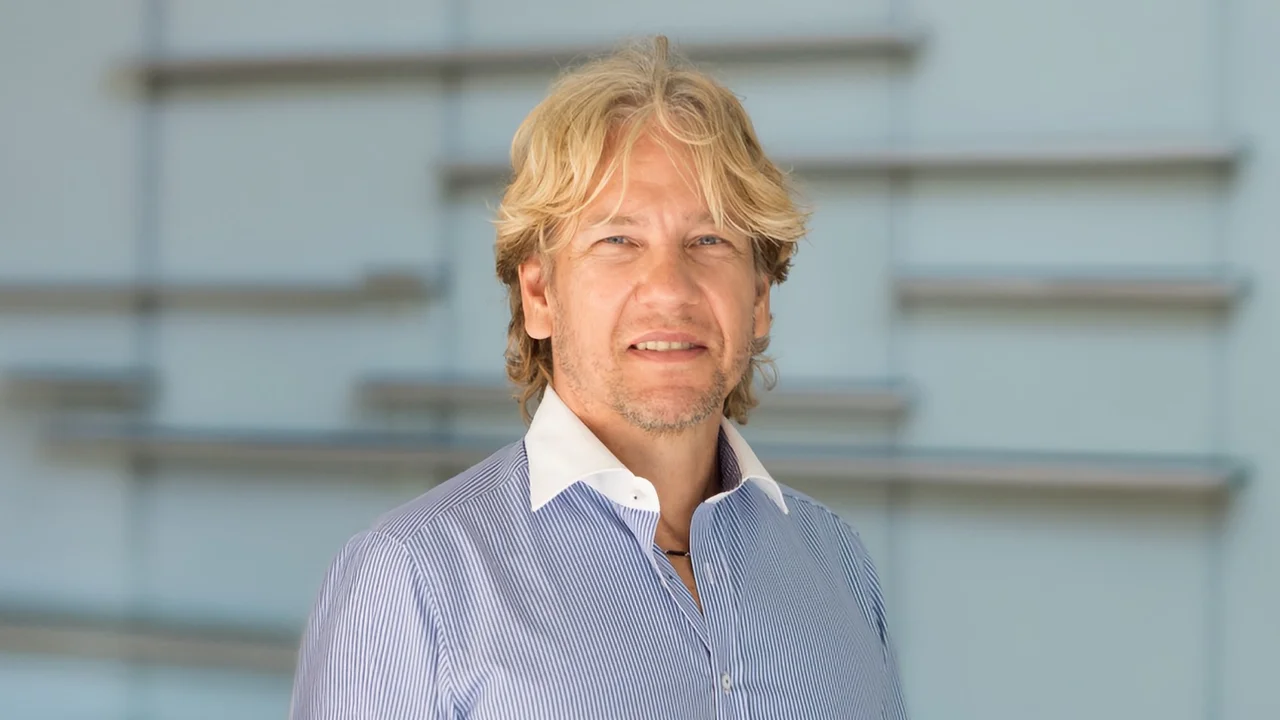
Jesper Tegnér
- Professor, Bioscience
- Principal Investigator, Living Systems Laboratory
- Jesper Tegnér > Appointments, Roles and Affiliations, Strategic Chaired Professor of Computational Medicine, Director Division of Computational Medicine
- Jesper Tegnér > Appointments, Roles and Affiliations, Director Oxford Immune Algorithmics
Jasper Tegnér is an M.D./Ph.D., innovator and professor with over 350 publications, dedicated to exploring the interconnected mechanisms underlying life, intelligence and the mind. His research aims to advance fundamental progress in artificial intelligence by moving beyond engineering to understand the intrinsic modes of operation within cells, between cells and within the brain.
Biography
Professor Jesper Tegnér holds an M.D. and a Ph.D. in experimental and computational neuroscience from the Karolinska Institute in Sweden. He also holds three undergraduate degrees: mathematics (minor in theoretical physics), medicine (medical school), and philosophy (minor in psychology), as well as two years of postgraduate education in pure and applied computational mathematics.
Following his M.D./Ph.D., he became an assistant professor in computer science. While on leave, Tegnér spent five years as a visiting scientist at the Wenner-Gren Foundation in New York and as an Alfred P. Sloan Fellow in Boston.
Upon returning to Sweden, Tegnér was recruited as an assistant professor in computer science and bioinformatics. He became a chaired full professor 4½ years after his Ph.D., serving as head of the division of computational biology in the Department of Physics from 2002 to 2010. Tegnér was then appointed director and awarded a lifetime named strategic chaired professorship in computational medicine at the Center for Molecular Medicine, Karolinska Institute and Karolinska University Hospital, from 2010 to 2021.
He is the founder of two biotech startups and serves as executive director at Immune Algorithmics. Tegnér has been at KAUST since 2016 and is affiliated with the Bioscience, Computer Science, Bioengineering and Statistics programs.
Research Interests
Professor Tegnér’s research and teaching interests cover bioinformatics and artificial intelligence applications in the life sciences and medical research.
His team studies fundamental genomics, including the dynamical regulatory architecture of cells, with a focus on causality and foundational machine learning for AI and brain research. His group’s translational work targets cancer, including melanoma and breast cancer, and neurodegenerative diseases such as multiple sclerosis, Alzheimer’s and frontal dementia.
Tegnér has published 400 papers, received more than 20,000 citations, and has an H-index above 65.
Awards and Distinctions
- Alfred P. Sloan Fellowship, Alfred P. Sloan Foundation, 1998
- Wenner Green Research Fellow, Wenner-Gren Foundation, 1998
- Vinnova Innovation Prize for launching the most promising company of the year, Vinnova, 2005
- Winner of DREAM Network Reverse Engineering Competition, DREAM Network, 2008
- ERA (External Research Assessment) Outstanding Investigator, Karolinska Institute, 2012
- ERC (Consolidator) Co-investigator, European Research Council, 2014
- Named Fellow in the European Society for Preventive Medicine, European Society for Preventive Medicine, 2016
- Academic Faculty Speaker, Convocation, King Abdullah University of Science and Technology, 2019
- Invited Speaker, KAUST Leadership Program (KSLP), King Abdullah University of Science and Technology, 2019
- Winner of NeurIPS 2019 Data Challenge in Single Cell Genomics, NeurIPS, 2019
- Named Director of Oxford Immune Algorithmics, Oxford University, 2022
Education
- Doctor of Philosophy (Ph.D.)
- Medicine/Medicine Doctor, Karolinska Institutet, Sweden, 1997
- Doctor of Philosophy (Ph.D.)
- Pure and Computational Mathematics, Royal Institute of Technology & Stockholm University, Sweden, 1996
- Bachelor of Science (B.S.)
- Physician Program, Karolinska Institutet, Sweden, 1990
- Bachelor of Science (B.S.)
- Philosophy, Stockholm University, Sweden, 1990
- Bachelor of Science (B.S.)
- Mathematics, Stockholm University, Sweden, 1988